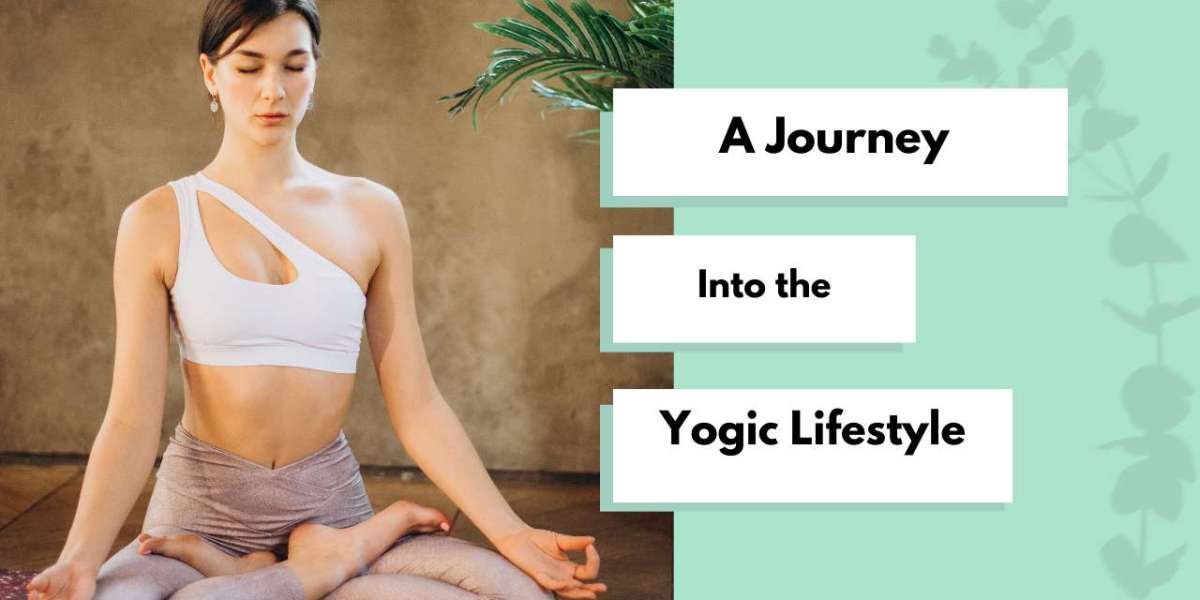In a world dominated by fast-paced schedules, endless responsibilities, and constant digital distractions, finding balance and inner peace can feel like an impossible task. For many, embracing a yogic lifestyle offers a pathway toward holistic wellbeing—connecting the mind, body, and spirit while fostering harmony with oneself and the environment. A yogic lifestyle is not just about practicing asanas on the mat; it encompasses ethical living, mindfulness, conscious choices, and the cultivation of inner awareness.
Embarking on a journey into the yogic lifestyle is both a personal and transformative process. It invites individuals to slow down, reflect, and make intentional choices that nurture physical health, mental clarity, emotional balance, and spiritual growth.
Understanding the Yogic Lifestyle
The yogic lifestyle is grounded in ancient philosophy, including the teachings of the Yoga Sutras of Patanjali, the Bhagavad Gita, and other classical texts. Its foundation rests on the principle that wellbeing arises from harmony between body, mind, and spirit, as well as ethical and mindful living. Key components include:
Ethical principles: Living in accordance with Yamas (social ethics) and Niyamas (personal discipline)
Mindful living: Cultivating awareness in everyday actions, thoughts, and decisions
Physical practice: Using asanas and breathwork to strengthen and balance the body
Spiritual exploration: Engaging in meditation, self-reflection, and practices that promote inner growth
By integrating these elements, individuals create a lifestyle that is intentional, balanced, and aligned with their higher purpose.
Starting the Journey: Awareness and Intention
The journey into a yogic lifestyle begins with self-awareness. Before adopting new practices, individuals are encouraged to observe their current habits, emotions, and patterns of thought. Questions such as “What causes stress in my life?” or “Which habits support my wellbeing?” help clarify the areas of focus.
Setting intention is equally important. A clear purpose—whether it is reducing stress, improving health, or deepening spiritual understanding—guides the journey. Short retreats, workshops, or immersion programs, such as a 7 Days Yoga Retreat in Rishikesh, provide a supportive environment to explore these questions and cultivate intention.
Physical Wellbeing Through Yoga
A key aspect of a yogic lifestyle is physical practice. Asanas (postures) and pranayama (breathwork) strengthen the body, improve flexibility, and enhance circulation. Daily practice fosters discipline and resilience while preparing the body for meditation and other mindful practices.
Even beginners can benefit from short, consistent practice. Retreats and structured courses, such as the 100 Hour Yoga Teacher Training Course in Rishikesh, provide guidance on postures, alignment, and breathwork techniques. Over time, this consistent physical practice becomes a natural extension of daily life, supporting long-term health and vitality.
Mental and Emotional Balance
The yogic lifestyle also emphasizes mental clarity and emotional wellbeing. Meditation, mindfulness, and reflective practices cultivate calmness, focus, and emotional resilience. Participants learn to observe thoughts without judgment, reduce mental clutter, and respond to challenges with equanimity.
Ethical living, guided by yogic principles, further strengthens emotional balance. Practicing honesty, non-violence, moderation, and self-discipline reduces internal conflict and fosters a sense of integrity and harmony in relationships and daily interactions.
Diet and Conscious Eating
A yogic lifestyle encourages mindful and conscious eating, often emphasizing a sattvic diet—foods that are fresh, wholesome, and nourishing. This approach promotes physical health, mental clarity, and emotional stability. Mindful eating involves paying attention to the origin, quality, and effect of food on the body, fostering gratitude and awareness with every meal.
Retreats often provide practical exposure to this concept, allowing participants to experience the benefits of mindful eating while integrating it into daily life.
Spiritual Growth and Inner Reflection
A yogic lifestyle goes beyond physical health and emotional wellbeing; it nurtures spiritual growth. Meditation, self-reflection, and practices such as chanting or mindfulness allow individuals to explore their inner world. This journey fosters self-awareness, compassion, and a deeper understanding of purpose and connection.
Programs like the 200 Hour, 300 Hour, and 500 Hour Yoga Teacher Training in Rishikesh provide immersive experiences that support both personal and spiritual development. Participants learn to integrate philosophy into practice, creating a holistic lifestyle rooted in balance and awareness.
Community and Shared Learning
The journey into the yogic lifestyle is often enriched by community. Practicing alongside like-minded individuals fosters support, shared learning, and accountability. Group retreats, yoga courses, and community activities provide opportunities for connection, reflection, and the exchange of experiences, strengthening the overall journey.
Popular Yoga Programs in Rishikesh
Students often choose Rishikesh because of the wide range of yoga courses available, catering to every level of practice.
100 Hour Yoga Teacher Training Course In Rishikesh – A short-term foundational course ideal for beginners or travelers looking to deepen their practice in a limited timeframe.
200 Hour Yoga Teacher Training – The most popular certification, providing a complete introduction to teaching methodology, philosophy, and balanced practice.
300 Hour Yoga Teacher Training – An advanced course designed for students who have already completed 200 hours and want to master their skills.
500 Hour Yoga Teacher Training In Rishikesh – A comprehensive program combining 200 and 300 hours, perfect for those who want the highest level of yoga education.
7 Days Yoga Retreat In Rishikesh – A wellness-focused retreat for students who may not want certification but are seeking rejuvenation, relaxation, and balance.
Frequently Asked Questions
Is a yogic lifestyle only for full-time practitioners or spiritual seekers?
No. It is accessible to anyone interested in cultivating balance, mindfulness, and wellbeing in daily life.How long does it take to adopt a yogic lifestyle?
There is no fixed timeline. Even small, consistent practices over weeks or months can have a significant impact.Can I integrate yogic lifestyle practices while working or studying?
Yes. Practices like meditation, mindful breathing, conscious eating, and short yoga sessions can be incorporated into daily routines.What role do retreats play in embracing a yogic lifestyle?
Retreats provide immersive experiences, structured learning, and a supportive environment to explore physical, mental, and spiritual practices.Do I need prior yoga experience to start this lifestyle?
No. Beginners can start with simple practices and gradually build deeper understanding through courses, retreats, and guided programs
Conclusion
A journey into the yogic lifestyle is a transformative path that nurtures the body, mind, and spirit. It offers practical tools for emotional balance, mental clarity, physical wellbeing, and spiritual growth. Through mindful living, ethical conduct, conscious practices, and community support, individuals can cultivate a life of harmony, purpose, and fulfillment.
Whether beginning with a short 7 Days Yoga Retreat in Rishikesh or progressing to immersive programs like the 100-, 200-, 300-, and 500 Hour Yoga Teacher Training, this journey provides both immediate benefits and long-term transformation. Embracing the yogic lifestyle allows individuals to navigate modern life with awareness, resilience, and a deep sense of inner peace.








